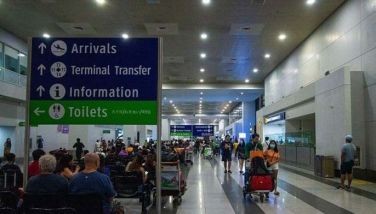Employers told to register household helpers with SSS
MANILA, Philippines - The Social Security System (SSS) is requiring all those employing household helpers to register with the state pension fund and secure an employer (ER) number under the Kasambahay Law.
Signed into law last January, the Kasambahay Law or Republic Act 10361 ensures the social security protection of house helpers including maids, family drivers, nursemaids or yaya, gardeners, cooks, and laundry women.
SSS officer-in-charge Edgar Solilapsi said any person who engages the services of a house helper and actually pays the compensation for such services is considered the household employer.
“Whether the husband or the wife, or any person in the family or household who shoulders the househelper’s salary, they must also register with the SSS so that they can be issued their own ER number, which they will use whenever they pay for the SSS contributions of their house help,†Solilapsi explained.
“This ER number will be different from the individual social security (SS) number that currently-paying household employers use, as we want to make a clear differentiation between contributions for their own social security and those for their house helpers,†he said.
Under previous guidelines, household employers use their own SSS numbers when paying contributions for their house helpers.
For new household employers, or for those who stopped being a household employer but have now resumed as such, they must complete the SSS Form R-1 or Employer Registration Form and submit this to the nearest branch so that their new ER number can be issued to them, Solilapsi said.
“They must also submit the SSS Form R-1A or Employment Report naming their househelpers,†Solilapsi said.
For currently paying household employers who are paying contributions for their house helpers using their own SSS numbers, they may continue doing so until the SSS issues them their own ER number upon submission of their latest contribution collection list.
The ER number may also be sent through email if the employer is enrolled in the SSS website or through the mail if enrolled in the auto-debit arrangement program with participating banks.
“It is important for household employers to remember that their obligations do not end with their paying the monthly SSS contributions of their house helpers. They must also submit the quarterly SSS Form R-3 so that we know to whom those contributions must be credited,†Solilapsi said.
The deadline for payment of SSS contributions depends on the tenth digit of the ER number. For 1 or 2, the payment deadline is on the 10th day of the month following the applicable month; for 3 or 4, the 15th day of the month; for 5 or 6, the 20th day of the month; for 7 or 8, the 25th day of the month; and for 9 or 0, on the last day of the month.
The forms for employers are available at all SSS branches or may be downloaded through the SSS website (www.sss.gov.ph).
The Kasambahay Law sets the minimum wage of domestic workers in Metro Manila at P2,500, in chartered cities and first-class municipalities at P2,000 and other municipalities at P1,500.
Under the law, workers must be paid in cash and are eligible to receive 13-month pay.
After a month of service, the househelp shall be covered by the SSS, the Philippine Health Insurance Corp., and the Home Development Mutual Fund (Pag-IBIG), and entitled to all the benefits.
If the worker receives a monthly salary of P5,000 and above, he or she must pay proportionate share in the premium payments or contributions. – With Paolo Romero
- Latest
- Trending






























